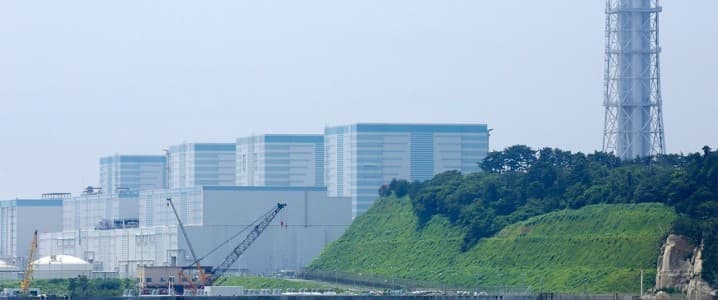Japanese Prime Minister Yoshihide Suga shocked the world on Friday when he announced that he will be stepping down and declining to seek re-election after serving one term. Suga, who made his resignation announcement after less than one year in office, was the successor of Shinzo Abe, the nation’s longest-serving Prime Minister. Suga’s administration has been historically unpopular amongst the Japanese public due to their handling of the Covid-19 pandemic, and his decision to step down “makes him a rare leader of a large, developed country to resign in large part because of the pandemic,” in the works of the New York Times. Suga’s departure has left an unexpected power vacuum in Japanese politics, but already one candidate has emerged as a major frontrunner. Ironically, the same crisis that brought Prime Minister Suga down is the very same one that brought Taro Kono to the forefront of the political melee. Taro Kono served as the minister in charge of battling Covid-19 in Japan. It is looking likely that Kono will garner the support of the Liberal Democratic Party (LDP), whose majority in the Japanese parliament ensures that any candidate who heads the party will ultimately win the race for Prime Minister. Kono emerged as the clear frontrunner in Japanese media polls over the weekend that asked respondents to indicate their preferred leader.
In addition to being known for his role in combating the novel coronavirus pandemic, Kono is also a noted anti-nuclear advocate with a long history of outspoken dissent about the nuclear energy that currently represents a fifth of Japan’s energy mix. Due to this history, the news of Kono’s ascent toward the Prime Minister position on Monday has already sent shockwaves through Japan’s energy markets.
Related: Is The World Investing Enough In Nuclear Fusion Research?
So far, renewable energy markets are winning big. “Frenzied buying from retail traders sent Japan’s renewable energy stocks soaring Monday,” in response to Kono’s emergence as a top contender according to reporting from Bloomberg. Solar and biomass power company Renova Inc. saw its stock increase by 15% while solar firm West Holdings Co. hit an all-time high after its stocks jumped 9%. These gains came at a cost to nuclear energy firms and power companies, and Kansai Electric Power Co. stocks notably dropped 2.7%.
Although the markets have already spoken, it remains to be seen whether Kono will stick to his staunchly anti-nuclear stance if he enters office as Prime Minister. “Whether he will actually reflect his previous stance into his policies once the race for the prime minister position begins is a different story,” Norihiro Fujito, chief investment strategist at Tokyo’s Mitsubishi UFJ Morgan Stanley Securities Co. was quoted by Bloomberg. “The market is just getting ahead of itself.”
Nuclear energy has long been a point of contention in Japan, in both public and private spheres. Japan has committed to achieving carbon neutrality by 2050, in line with the Paris Agreement’s goals for curbing global greenhouse gas emissions, and that milestone will be extremely difficult to hit without nuclear energy. Currently, the national plan “calls for renewable sources to provide between 22% and 24% of Japan’s electricity by 2030, and for nuclear energy to provide between 20% and 22%.” But nuclear energy is a hard sell in Japan, a country that is still recovering from the devastating 2011 Fukushima nuclear disaster.
Just this week, a full decade after the tragedy caused by an earthquake and ensuing tsunami, the International Atomic Energy Agency is reaching out to Japan to work alongside them in their continuing struggles to manage the radioactive waste still piling up after the 2011 accident. Japan has continued to use more than a million tonnes of water to cool the damaged reactors and prevent a meltdown, and now they’re running out of storage space for the radioactive waste water. Their plan? Dump it into the Pacific Ocean.
The continued complications and hazardous aftereffects of the nuclear disaster at Fukushima throw the dark side of nuclear into stark relief for the Japanese public. While nuclear energy has long been a major part of the country’s energy mix and will likely continue to be in order to meet Japan’s climate change goals, it continues to be incredibly divisive. It remains to be seen whether Taro Kono will take the helm of Japan, but if he sticks to his guns, the Japanese nuclear energy sector could soon recede into the rearview.
By Haley Zaremba for Oilprice.com
More Top Reads From Oilprice.com:
- 3 Bullish Catalysts For Oil This Fall
- The U.S. Power Grid Is At Risk Of Catastrophic Failure
- U.S. Oil Rigs See Sharpest One-Week Decline In Over A Year


















